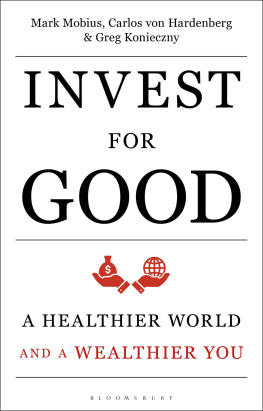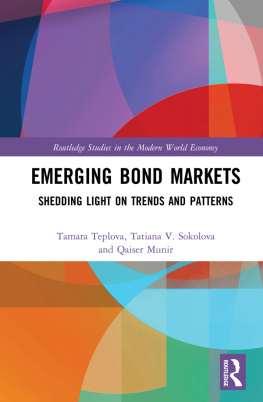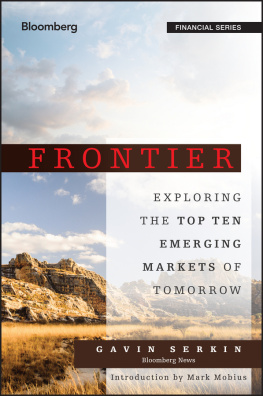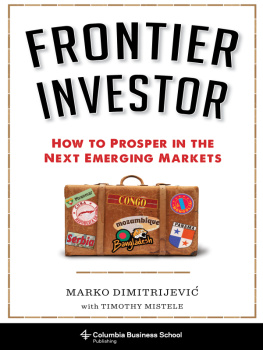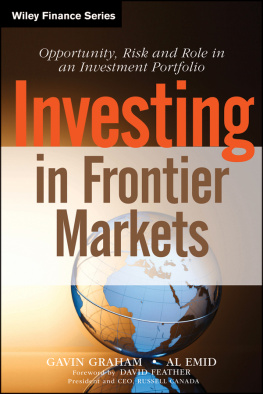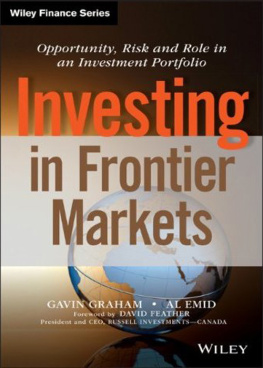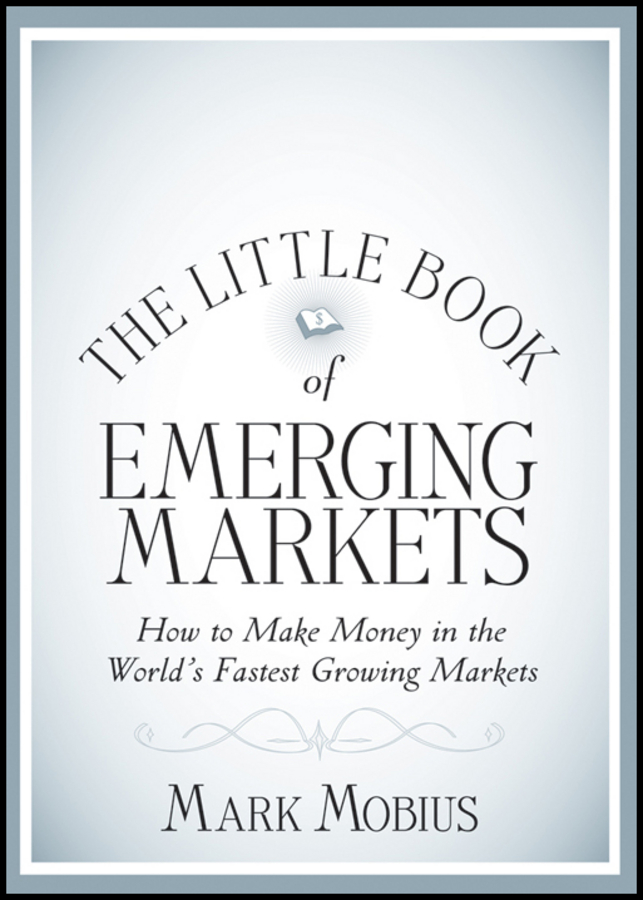Contents
Little Book Big Profits Series 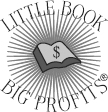
In the Little Book Big Profits series, the brightest icons in the financial world write on topics that range from tried-and-true investment strategies to tomorrows new trends. Each book offers a unique perspective on investing, allowing the reader to pick and choose from the very best in investment advice today.
Books in the Little Book Big Profits series include:
The Little Book That Still Beats the Market by Joel Greenblatt
The Little Book of Value Investing by Christopher Browne
The Little Book of Common Sense Investing by John C. Bogle
The Little Book That Makes You Rich by Louis Navellier
The Little Book That Builds Wealth by Pat Dorsey
The Little Book That Saves Your Assets by David M. Darst
The Little Book of Bull Moves by Peter D. Schiff
The Little Book of Main Street Money by Jonathan Clements
The Little Book of Safe Money by Jason Zweig
The Little Book of Behavioral Investing by James Montier
The Little Book of Big Dividends by Charles B. Carlson
The Little Book of Bulletproof Investing by Ben Stein and Phil DeMuth
The Little Book of Commodity Investing by John R. Stephenson
The Little Book of Economics by Greg Ip
The Little Book of Sideways Markets by Vitaliy N. Katsenelson
The Little Book of Currency Trading by Kathy Lien
The Little Book of Stock Market Profits by Mitch Zacks
The Little Book of Big Profits from Small Stocks by Hilary Kramer
The Little Book of Trading by Michael W. Covel
The Little Book of Alternative Investments by Ben Stein and Phil DeMuth
The Little Book of Valuation by Aswath Damodaran
The Little Book of Bulls Eye Investing by John Mauldin
The Little Book of Emerging Markets by Mark Mobius
The Little Book of Hedge Funds by Anthony Scaramucci

Copyright 2012 by Mark Mobius.
Published by John Wiley & Sons Singapore Pte. Ltd.
1 Fusionopolis Walk, #07-01, Solaris South Tower, Singapore 138628
All rights reserved.
No part of this publication may be reproduced, stored in a retrieval system, or transmitted in any form or by any means, electronic, mechanical, photocopying, recording, scanning, or otherwise, except as expressly permitted by law, without either the prior written permission of the Publisher, or authorization through payment of the appropriate photocopy fee to the Copyright Clearance Center. Requests for permission should be addressed to the Publisher, John Wiley & Sons Singapore Pte. Ltd., 1 Fusionopolis Walk, #07-01, Solaris South Tower, Singapore 138628, tel: 65-6643-8000, fax: 65-6643-8008, e-mail: .
This publication is designed to provide accurate and authoritative information in regard to the subject matter covered. It is sold with the understanding that the Publisher is not engaged in rendering professional services. If professional advice or other expert assistance is required, the services of a competent professional person should be sought. Neither the author nor the Publisher is liable for any actions prompted or caused by the information presented in this book. Any views expressed herein are those of the author and do not represent the views of the organizations he works for.
Other Wiley Editorial Offices
John Wiley & Sons, 111 River Street, Hoboken, NJ 07030, USA
John Wiley & Sons, The Atrium, Southern Gate, Chichester, West Sussex, P019 8SQ, United Kingdom
John Wiley & Sons (Canada) Ltd., 5353 Dundas Street West, Suite 400, Toronto, Ontario, M9B 6HB, Canada
John Wiley & Sons Australia Ltd., 42 McDougall Street, Milton, Queensland 4064, Australia
Wiley-VCH, Boschstrasse 12, D-69469 Weinheim, Germany
ISBN 978-1-118-15381-9 (Hardcover)
ISBN 978-1-118-15370-3 (ePDF)
ISBN 978-1-118-15382-6 (Mobi)
ISBN 978-1-118-15383-3 (ePub)
Typeset in 12.75/15.5, CgCloister by MPS Limited, Chennai, India
To my mother and father for giving me the opportunity to learn
Introduction
One of the most frequent questions I get asked is: Whens the best time to invest? The answer is: The best time to invest is when you have money. The reality is that market timing is impossible, and since purchasing ordinary shares of companies traded on a stock exchange (which is called equity investing) is the best way to preserve value, rather than leaving money in a bank account, it is most advisable to just get going. Dont wait for the fabled perfect moment. That answers the question of when to buy, but what about knowing when to sell? My advice on that issue is that an investment should not be sold unless a much better investment has been found to replace it.
The best time to invest is when you have money.
Sir John Templeton
To me, more important than the question of when to invest is the question of where to invest. My bias rests with emerging markets. Emerging markets are the financial markets of economies that are in the growth stage of their development cycle and have low to middle per capita incomes. The opposite of an emerging market is a developed market, the financial market of a mature economy with a high per capita income.
Emerging markets possess a greater upside in the long term because of their strong economic growth. Specifically, they offer the best opportunity for higher returns and diversification. It might also surprise you to know that emerging economies account for about two-thirds of the worlds land massthats a large part of the world that you cant afford to miss out on!
Emerging markets are close to my heart; having worked in emerging countries for more than 40 years, Ive learned a great deal about how their markets work and where money can be made. This book not only introduces you to emerging markets, but also describes where, why, and how you can invest in them. I also give you insights into individual markets and some of the crises that these markets have withstood; I hope to equip you with information that will help you better navigate through your search for investments in these markets.
But while were on the topic of when, Id like to share something Ive learned over the years: Bull markets run longer and gain more in percentage terms than bear markets, which last a short period of time and fall less in percentage terms. This is an important overall phenomenon of which to be aware, because it is a factor when deciding whether to invest.
Market timing is difficult, but it is generally safe to assume that a bull market is coming eventually and that the stock market will rise above its previous highs during that time. Moreover, if youre strong enough to hold your own in both up and down markets, the best thing to do is to buy more stocks when the bear market comes, because it is going to be shorter in duration than the bull market. Investors who bought during the last bear market in 2008, for example, in many emerging markets doubled their money. Of course well have more bear markets going forward, but the lesson is clear.
Before diving in, lets look at an example. In January 1988, a bull market run in emerging markets began that lasted for about nine and a half years and saw the index climb over 600% from its starting point. The ensuing bear market lasted just over a year and saw a loss of more than 50% in the value of the index. The next bull market began in September 1998, and over the course of a year and a half, gained over 110% in value. This was followed by a similar-duration bear run in which prices declined by close to 50%.


